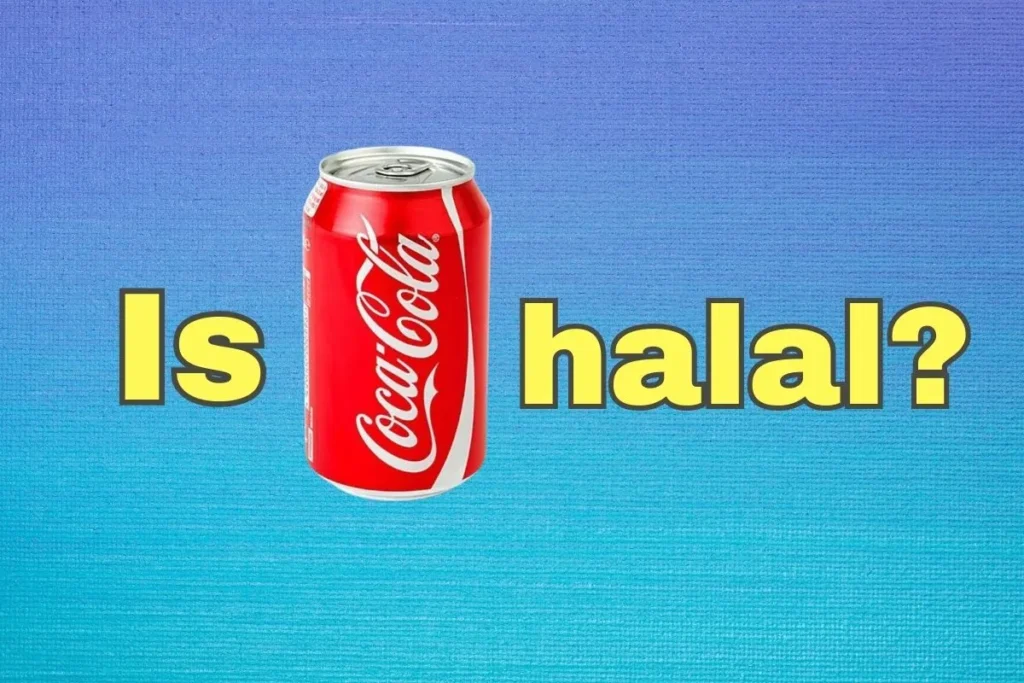Cheetos are one of the most popular snacks in the world, but are they halal? This is a question that many Muslims may have, especially if they love crunchy and cheesy treats.
The answer is not so simple, as different types of Cheetos may have different ingredients and certifications. In this article, we will explore what Cheetos are, what they contain, and whether they are halal or not.
Key Takeaways
| 📌 Frito-Lay does not provide halal certification for Cheetos, but specific variants without pork enzymes may align with halal dietary principles. |
| 📌 Despite the absence of a halal certificate, Cheetos remain a matter of personal choice, with considerations for individual preferences and adherence to Islamic dietary guidelines. |
What is Cheetos?
Cheetos are a brand of cheese-flavored puffed corn snacks, created by Frito-Lay, a subsidiary of PepsiCo. They come in various shapes, sizes, and flavors, such as Crunchy, Puffs, Flamin’ Hot, Cheddar Jalapeño, and more.
Cheetos are sold in over 40 countries and have a loyal fan base of consumers who enjoy their crispy and cheesy taste.
Cheetos Ingredients
The main ingredients of Cheetos are cornmeal, vegetable oil, cheese seasoning, salt, and additives. The cheese seasoning is made of whey, cheddar cheese, canola oil, maltodextrin, natural and artificial flavors, salt, lactic acid, and yellow 6.
The additives may include monosodium glutamate (MSG), disodium phosphate, sodium caseinate, and citric acid. The ingredients may vary depending on the type and flavor of Cheetos.
Does Cheetos Contain Haram Ingredients?
Some of the ingredients of Cheetos may raise concerns for Muslims who follow halal dietary laws. These include:
Cheese
Cheese is a dairy product that is derived from animal milk, usually cow’s milk. Cheese can be halal or haram depending on how it is made and what kind of rennet is used.
Rennet is an enzyme that is used to coagulate milk and separate the curds from the whey. Rennet can be derived from animal, plant, or microbial sources. Animal rennet is usually extracted from the stomach of calves, lambs, or goats.
If the animal is not slaughtered according to Islamic rules, then the rennet is haram. Plant and microbial rennet are halal, as they do not involve any animal products.
The cheese used in Cheetos is cheddar cheese, which may or may not contain animal rennet.
Natural and artificial flavors
Natural and artificial flavors are substances that are added to food to enhance or modify its taste, smell, or color. Natural flavors are derived from natural sources, such as fruits, vegetables, herbs, spices, or animal products.
Artificial flavors are synthesized in laboratories, using chemicals or biotechnology. Natural and artificial flavors can be halal or haram depending on their origin and composition.
Some natural flavors may contain alcohol, pork, or other haram substances. Some artificial flavors may contain animal-derived ingredients, such as gelatin, glycerin, or fatty acids.
Yellow 6
Yellow 6 is a synthetic food dye that is used to give Cheetos their orange color. Yellow 6 is also known as Sunset Yellow FCF, and it is derived from petroleum.
Yellow 6 is considered halal by some scholars, as it does not contain any animal or alcohol ingredients.
So, does Cheetos contain pork or porcine enzyme?
Luckily, Frito-Lay has thoughtfully provided a list on its official website detailing Cheetos variants that are free from pork enzymes. These include:
- CHEETOS® Baked Crunchy Cheese Flavored Snacks
- CHEETOS® Baked Crunchy Flmain’ Hot® Limon Cheese Flavored Snacks
- CHEETOS® Bolitas Chile & Cheese Flavored Corn Snack
- CHEETOS® Cheddar Flavored Popcorn
- CHEETOS® Cheddar Jalapeno Flavored Popcorn
- CHEETOS® Cheddar Jalapeno Flavored Popcorn
- CHEETOS® Crunch Pop Mix Cheese Popcorn and Snack Mix
- CHEETOS® Crunchy Cheddar Jalapeño Flavored Snacks
- CHEETOS® Crunchy Cheese Flavored Snacks
- CHEETOS® Crunchy Flamin’ Hot® Cheese Flavored Snacks
- CHEETOS® Crunchy Flamin’ Hot® Chili Fusion Cheese Flavored Snacks
- CHEETOS® Crunchy Flamin’ Hot® Limón Cheese Flavored Snacks
- CHEETOS® Crunchy XXTRA Flamin’ Hot® Cheese Flavored Snacks
- CHEETOS® Flamin’ Hot® Flavored Popcorn
- CHEETOS® Flavor Shots Flamin’ Hot Asteroids Flavored Corn Puffs
- CHEETOS® Minis Cheddar Cheese Flavored Snacks
- CHEETOS® Minis Flamin’ Hot® Cheese Flavored Snacks
- CHEETOS® Puffs Cheese Flavored Snacks
- CHEETOS® Puffs Flamin’ Hot® Cheese Flavored Snacks
- CHEETOS® Reduced Fat Crunchy Cheese Flavored Snacks
- CHEETOS® Reduced Fat Crunchy Flamin’ Hot Limon Cheese Flavored Snacks
- CHEETOS® Reduced Fat Puffs Cheese Flavored Snacks
- CHEETOS® Reduced Fat Puffs Flamin’ Hot® Cheese Flavored Snacks
- CHEETOS® Simply Crunchy White Cheddar Cheese Flavored Snacks
- CHEETOS® Simply Crunchy White Cheddar Jalapeno Cheese Flavored Snacks
- CHEETOS® Simply Puffs White Cheddar Cheese Flavored Snacks
- CHEETOS® White Cheddar Bites Cheese Flavored Snacks
Does Cheetos Have a Halal Certificate?
A halal certificate is a document that certifies that a food product or a food establishment is compliant with Islamic dietary laws. A halal certificate is issued by a halal authority, which is a recognized organization that inspects, audits, and verifies the halal status of food products and food establishments.
Unfortunately, Cheetos do not have a halal certificate, as Frito-Lay does not claim or label their products as halal. Frito-Lay also states that they do not have any plans to obtain a halal certification for their products, as they do not cater to any specific religious or dietary preferences.
You may also like:
Is Lay’s Halal or Haram? Snacking Confidently
Is Cheetos Halal?
Drumroll, please! The million-dollar question – is Cheetos halal?
Well, it’s a bit of a mixed bag. If halal certification is a deal-breaker for you, go for the certified brand varieties. For the less stringent, the core ingredients are halal-friendly.
Can I Eat Cheetos Even If It Doesn’t Have a Halal Certificate?
Absolutely, indulging in it is permissible, even in the absence of a halal certificate. This is supported by several arguments:
Hadith
عَنْ عَائِشَةَ رَضِيَ اللَّهُ عَنْهَا أَنَّ قَوْمًا قَالُوا يَا رَسُولَ اللَّهِ إِنَّ قَوْمًا يَأْتُونَنَا بِاللَّحْمِ لَا نَدْرِي أَذَكَرُوا اسْمَ اللَّهِ عَلَيْهِ أَمْ لَا فَقَالَ رَسُولُ اللَّهِ صَلَّى اللَّهُ عَلَيْهِ وَسَلَّمَ سَمُّوا اللَّهَ عَلَيْهِ وَكُلُوهُ
It was narrated from ‘Aishah, the Mother of the Believers, that some people said:
“O Messenger of Allah, some people bring us meat, and we do not know whether the Name of Allah has been mentioned over it or not.” He said: “Say: Bismillah and eat.’ They were new in Islam.
Sunan Ibn Majah 3174
Fiqh Principle
الأَصْلُ فِي الأَشْيَاءِ الإِبَاحَةُ
By default, everything is considered permissible.
Scholars’ opinion
Ibnu Taimiyah
فَاعْلَمْ أَنَّ الْأَصْلَ فِي جَمِيعِ الْأَعْيَانِ الْمَوْجُودَةِ عَلَى اخْتِلَافِ أَصْنَافِهَا وَتَبَايُنِ أَوْصَافِهَا أَنْ تَكُونَ حَلَالًا مُطْلَقًا لِلْآدَمِيِّينَ وَأَنْ تَكُونَ طَاهِرَةً لَا يَحْرُمُ عَلَيْهِمْ مُلَابَسَتُهَا وَمُبَاشَرَتُهَا وَمُمَاسَّتُهَا وَهَذِهِ كَلِمَةٌ جَامِعَةٌ وَمَقَالَةٌ عَامَّة
The fundamental principle governing all things is determined by variations in levels and nature, where everything is considered permissible for humans.
Similarly, the basic rule is that things are sacred, and there are no restrictions on wearing, drinking, or touching. This approach is comprehensive, addressing a broad spectrum of issues with a general and inclusive nature.
Ibnu Hajar
أَنَّ كُلّ مَا يُوجَد فِي أَسْوَاق الْمُسْلِمِينَ مَحْمُول عَلَى الصِّحَّة ، وَكَذَا مَا ذَبَحَهُ أَعْرَاب الْمُسْلِمِينَ ، لِأَنَّ الْغَالِب أَنَّهُمْ عَرَفُوا التَّسْمِيَة ، وَكَذَا الْأَخِير جَزَمَ اِبْن عَبْد الْبَرّ فَقَالَ : فِيهِ أَنَّ مَا ذَبَحَهُ الْمُسْلِم يُؤْكَل وَيُحْمَل عَلَى أَنَّهُ سُمِّيَ
Everything obtained in the Muslim market is halal. Likewise with the results of their slaughter because their Muslim origins already understand the need to recite ‘bismillah’ when slaughtering. Therefore, Ibn ‘Abdil Abrr said that a Muslim’s slaughter is permissible to eat and we assume it is good that he said bismillah when slaughtering.
Allahu A’lam (Allah Knows Best)
FAQ
Does Cheetos have pork enzymes?
According to Frito-Lay, the manufacturer of Cheetos, some of their cheese seasonings may contain pork enzymes. Pork enzymes are derived from the stomach of pigs and are used to develop the cheese flavor.
However, not all types of Cheetos contain pork enzymes. Frito-Lay provides a list of products that are made without pork enzymes on their website. Some examples are:
- Baked! Cheetos Crunchy Cheese Flavored Snacks
- Cheetos Baked! Flamin’ Hot Cheese Flavored Snacks
- Cheetos Crunchy Flamin’ Hot Limón Cheese Flavored Snacks
- Cheetos Fantastix! Chili Cheese Flavored Corn Snacks
- Cheetos Puffs Cheese Flavored Snacks
Are Baked Cheetos Halal?
Yes, these variants of Baked Cheetos are made without pork (Porcine) enzymes:
- CHEETOS® Baked Crunchy Cheese Flavored Snacks
- CHEETOS® Baked Crunchy Flmain’ Hot® Limon Cheese Flavored Snacks
- Is Pop Tarts Halal? What You Need to Know - February 18, 2024
- Are Graham Crackers Halal in Islam? - January 19, 2024
- Is Keebler Wheatables Halal? - January 18, 2024





